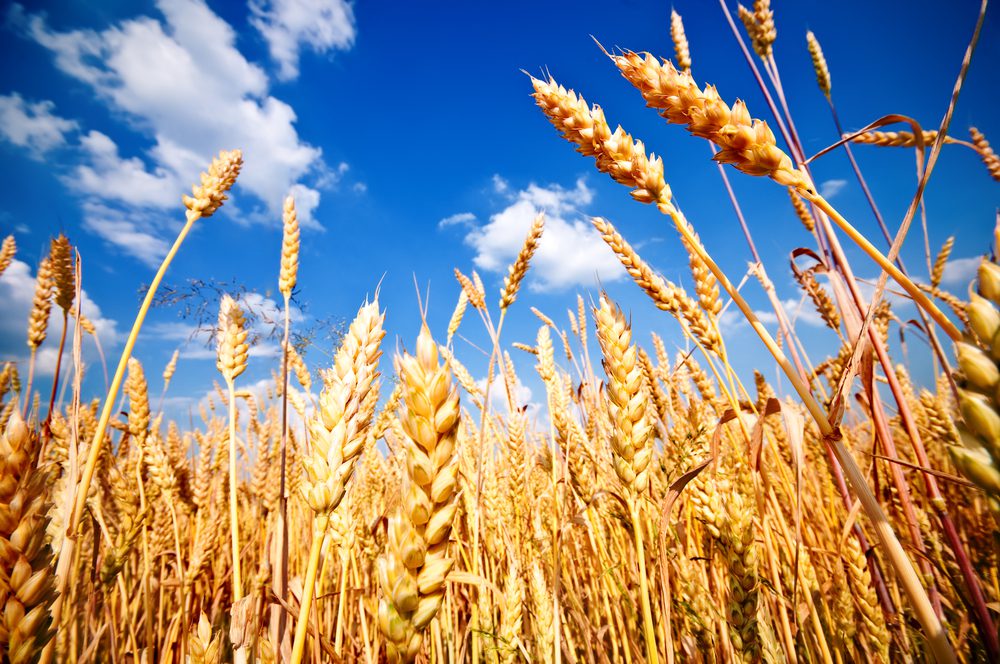Anyone who looks closely at an “Irish” brand of flour will notice that the packet will say something like “milled and packed” in Ireland. However, the wheat that flour is produced from is most likely not Irish.
Ireland now produces just a small amount of flour from Irish wheat, the majority of flour is imported and the main bulk of milling wheat or flour is imported from the UK.
Up to now, while tillage farmers might have been annoyed by this, the majority of consumers paid no heed. However, Brexit is now causing concern for the supply of that flour.
AgriLand spoke to Alex Waugh of the National Association of British and Irish Flour Millers (NABIM).
“Approximately 300,000-350,000t of wheat and flour crosses in both directions over the borders between Ireland and the UK and Northern Ireland,” he explained.
There’s quite a lot of flour imported into Ireland from Northern Ireland and the UK. In wheat terms, it’s probably 230,000-240,000t of wheat equivalent comes in as flour.
It is also very important to note that much of this flour is exported back to Northern Ireland or the UK as final product.
“Some of that will be made into food in Ireland and either exported back to the north or Great Britain,” Alex noted.
According to Alex the bakery trade is worth about €100 million in each direction and assuming that there’s a deal everything will carry on in both directions as normal.
If there is no-deal frankly it’s going to be really difficult because the tariffs are quite high.
“There’s been quite a lot of talk about the impact on the meat and dairy sector, but the tariffs on cereal products are also high.
The tariff on flour is about 50% of the value. On wheat there’s a flat rate tariff of €95/t, so it’s around 50%.
“They’re the kind of costs that nobody wants to live with. So, it will be enormously disruptive if that comes to pass.”
Mitigate costs
Alex explained that there are ways to mitigate some of these costs, but they are complicated and there is a long way to go in organising these special measures, such as inward and outward processing reliefs, where you avoid costs where products are either stored or processed before travelling back to the same destination.
The challenge is it requires the tax authorities on both sides to agree.
“There’s quite a lot of work to be done on that. It seems to be difficult to get started with it, until the UK has left. We’re doing some work on it.”
Effect on trade in the short and long term
When asked were Irish processors moving away from UK wheat supplies, Alex explained that he didn’t think this was actively happening yet. Many businesses are actively stockpiling wheat.
“There’s a reason why this trade happens, because it’s the best for both sides, so if either in Ireland you have to look for an alternative source or an alternative market you kind of know it’s the second best option.
So, no one is keen to take the second best option while the first is still available.
If trade does cease between the two countries in a no-deal scenario, Alex is confident that it will return.
“If the tariffs are temporarily applied and then are taken off again I think the trade will come back, because a 50% tariff is a big financial incentive and if you take it away again I think the people will shift back. I’m sure that everyone is going to do everything they can to manage it.”
Effect on processing
A change in supplier could also mean a change in processing in the mills and bakeries.
“Naturally, because of the climate and the varieties, there is a difference between what you get in France and Germany and what you get in the UK.
There will have to be quite a lot of work done to make sure you’re getting an equivalent performance. That’s difficult and that’s one of the reasons why there hasn’t been much of a move to change already.
“There are a lot of customers buying flour in the republic who then send their products back to either Northern Ireland or England. In the event of no-deal they won’t be able to do that. In business terms, it’s hard to see how this could be good news for anyone.”
